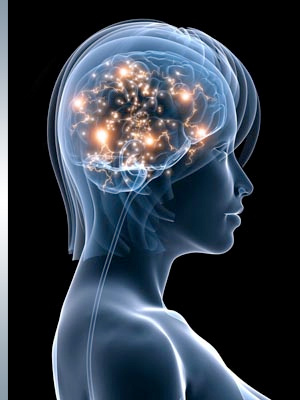Causes of Bipolar Disorder
 While there are differing opinions on the root causes of bipolar disorder, researchers have found that genetic, environmental, and lifestyle factors can significantly increase a person’s likeliness of experiencing the disorder. In some cases, “causes” may simply trigger symptoms in people who are already susceptible to bipolar disorder but have simply not experienced manic or depressive cycles in the past.
While there are differing opinions on the root causes of bipolar disorder, researchers have found that genetic, environmental, and lifestyle factors can significantly increase a person’s likeliness of experiencing the disorder. In some cases, “causes” may simply trigger symptoms in people who are already susceptible to bipolar disorder but have simply not experienced manic or depressive cycles in the past.
Genetic Causes of Bipolar Disorder
About 50 percent of people diagnosed with the illness have a family member with a mood disorder. Bipolar disorder, therefore, is thought to have a strong genetic component. In most cases, genetic traits influence the behavior of neurotransmitters in the brain, including serotonin, dopamine and norepinephrine.
Doctors know that there are genetic causes of bipolar disorder because of research showing the following:
- If a person has at least one parent with bipolar disorder, he or she has a 15 to 25 percent chance of developing the disorder
- A person with a non-identical twin who has bipolar disorder has a 25 percent chance of also developing it
- Identical twins with bipolar disorder often develop the disorder independently, even when raised in separate households
While having a genetic predisposition to bipolar disorder does not necessarily mean that a person will experience symptoms, it does put that person at a much greater risk for the disorder.
Environmental Causes of Bipolar Disorder
Environmental causes of bipolar disorder often act as triggers. Either causing the person to experience his or her first symptoms, or exacerbating the symptoms so that they become problematic.
Common environmental factors that can trigger bipolar disorder symptoms include:
- Traumatic life events, such as the loss of a loved one, witnessing extreme violence, physical injury or illness
- Repeated exposure to stress (even relatively low levels of stress can trigger symptoms when experienced over long periods of time)
While drug and alcohol abuse is not considered a cause of bipolar disorder, there have been cases when abusing substances has lead to manic or depressive states, even when the person does not have a family history of mental illness. Substance abuse can also intensify previously unnoticed symptoms. Taking certain prescription drugs can trigger symptoms in persons with bipolar disorder. Those misdiagnosed with depression, for instance, might experience manic episodes by taking prescribed antidepressants such as Prozac or Zoloft. Identifying the root causes of a person’s bipolar disorder is not always possible. In some cases, symptoms seem to appear in seemingly healthy people. There is still much to learn about the causes of bipolar disorder, but research is revealing more about this illness every year.
